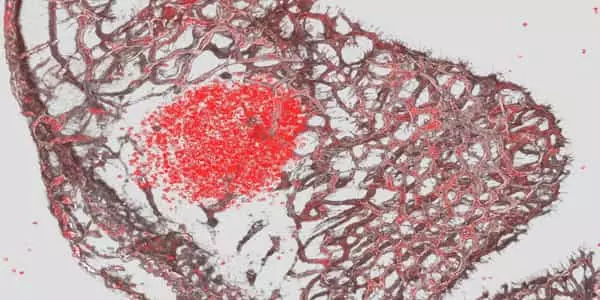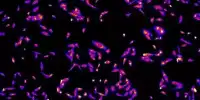Although strokes are commonly associated with the elderly, unborn babies and infants (known as “neonates” until they reach the age of four weeks) can also sustain these injuries. Strokes in neonates are more difficult to detect than in older children. An older child may have hemiparesis, or weakness on one side of the body; this is the most common symptom for children of this age. However, in neonates, the first sign of a stroke is often the more severe symptom of seizures, making it more difficult to diagnose a stroke quickly and take steps to minimize the damage it causes.
Scientists have identified a major cause of stroke that occurs in the womb or shortly after birth, paving the way for new treatments. The study discovered that a low number of platelets (small blood cells known to aid in clotting) in babies, whether in the womb or as newborns, could result in brain bleeding. These bleeds can result in fatal strokes or permanent neurological conditions like cerebral palsy.
The study discovered that a low platelet count in babies, whether in the womb or as newborns, could result in brain bleeding. These bleeds can result in fatal strokes or permanent neurological conditions like cerebral palsy.
Scientists have discovered an important cause of stroke occurring in the womb or just after birth, paving the way for new treatments.
Published in Blood, the research led by Dr Alison Farley and Dr Samir Taoudi identified that platelets played a crucial role in the fetal and newborn brain in preclinical models.
Platelet loss linked to stroke in newborns
Platelets are small blood cells that aid in blood clotting. Platelets normally prevent bleeding by clumping and forming plugs to stem blood vessel injuries like cuts or abrasions, limiting blood loss.
Thrombocytopenia is a decrease in platelets that can lead to excessive bleeding if blood vessels are already damaged.
According to Dr. Farley, thrombocytopaenia can occur during fetal development, but the consequences have not been thoroughly studied. “We discovered a direct link between low platelet counts and brain bleeds. We also discovered that the time of thrombocytopenia determines the region of the brain where bleeding occurs” She stated.

According to Dr. Farley, the study is the first step in identifying new treatments to prevent these strokes. “Previously, it was thought that platelets were not required during the early stages of development,” she said. “However, this research shows that platelets play an important role during this time.” “We’re now trying to figure out when platelets become important during fetal development so we can monitor and treat this condition during pregnancy.”
Improving monitoring and treatments in pregnancy
Dr. Taoudi stated that there is still much to learn about treating thrombocytopaenia in fetuses and newborn babies. “We know how to treat low platelet counts in adults, but we don’t know how effective these treatments are in babies, which is something we hope to address in future research. Platelet transfusions into fetuses have been attempted, but the benefits of this highly invasive procedure are unclear “He stated.
“Our next step is to determine the best time to start treatment during pregnancy to prevent these strokes.” Dr. Taoudi expressed hope that this discovery would lead to better screening and treatment during pregnancy and shortly after birth.
“The question we’re now trying to answer is how low platelets need to be before there’s a problem,” he explained. “At the moment, we don’t know what a normal platelet count is for unborn babies or neonates, so understanding that is critical before we can treat this condition.”
Preventing serious neurological diseases
The Cerebral Palsy Alliance Research Foundation provided significant funding for the study. Cerebral palsy is diagnosed in one out of every 700 babies born in Australia, and it is thought to be one of the conditions caused by fetal stroke. “We hope to find ways to prevent neurological conditions like cerebral palsy by understanding what causes these strokes,” Dr Farley said.
The Cerebral Palsy Alliance, the National Health and Medical Research Council, the Australian Research Council’s Stem Cells Australia program, the Australian Cancer Research Foundation, the Lorenzo and Pamela Galli Charitable Trust, and the Victorian Government funded this research.















